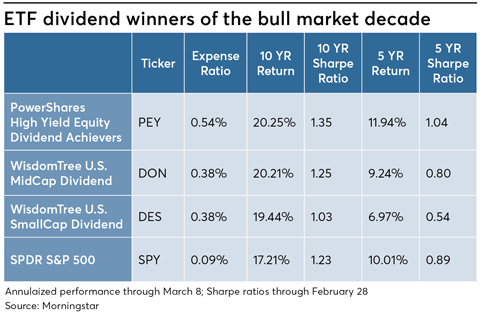
There are many dividend stocks with great monthly payouts that you should look into. These five companies can help you reap the benefits compounding interest. These companies have been able to pay dividends as high as 25% thanks to recent dividend increases. Each of these companies pays a monthly payout to shareholders. Learn more about them all. Here are some reasons that you might want to look into each company. You may be surprised at one or two!
Northland Power
Northland Power, a Canadian dividend stock that is well-respected, is the best choice. The company manages a large Taiwanese wind energy plant that can produce 1,044 megawatts. Canadian counterpart CT REIT is another solid monthly dividend stock. CT REIT has a large portfolio of high quality assets in Canada that it leases to Canadian Tire Corporation. Canadian Tire Corp.'s long-term long-term leases have annual rental growth. This gives investors insight into Canadian Tire Corp.'s long-term plans.
The company is a renewable energy business, but it also owns a number utility and renewable power businesses. The company has extensive experience in operating and developing offshore wind farms. These companies offer high growth potential and strong dividend history. Northland Power shares can benefit from Canadians' increasing interest in renewable energy. These stocks have performed consistently better than the market in the past half decade with revenues and earnings increasing by over 31% each over the past three years.

LTC Properties
LTC Properties has become an income investor's top choice for monthly dividend stocks. Despite recent share prices falling, this property developer continues to pay a steady dividend. Despite its recent share price decline, LTC Properties is still able to cover its dividend with a tight payout ratio. The company has also demonstrated that its management believes that the future is brighter than its recent past.
These monthly dividend stocks offer several benefits over other forms of dividend investment. Besides providing passive income, these companies can also provide you with exposure to niche sectors, while providing additional income stability. Dividend yields can be calculated by taking the monthly average and then dividing it by share price. CEF Connect provides the expense ratio and discount/premium NAV. These two numbers are used by CEF Connect to help determine the best monthly dividend stock.
Stag Industrial
STAG Industrial might be worth looking into if you're looking for a stock that pays a monthly dividend. The company went public less than 10 years ago. Its primary focus is on single-tenant industrial buildings. STAG is well-positioned as an e-commerce company to flourish in a market where there is increasing demand for industrial warehouse spaces. Investors will also enjoy a high dividend yield.
STAG Industrial was founded in 2010 as a real estate investment trust. It owns 544 properties across forty states. It leases these properties to more than 359 different companies in diverse industries. The company has a well-planned lease term and weighted average lease term. STAG Industrial has a stable, reliable income stream that is ideal for monthly dividend investors.

Prospect Capital
This company provides loans to small business owners with high interest rates and acquisition opportunities for smaller businesses. This company provides private equity financial backing to middle-market businesses. The company invests in a variety of industries and holds loan securitizations on more than 127 corporations. Its investment portfolio comprises 39 different types. Investors should keep an eye on its net investment income. The company could decrease its dividends.
Prospect Capital is an investment company that specializes in private equity and debt financing. It invests in middle markets companies that have between 100 and 2000 employees. With assets of $8.1 billion, it is one the largest BDCs. Prospect Capital can serve these companies better because there is less competition. Prospect Capital's ability source and invest in many deals has led to its rapid growth.
FAQ
What is the difference between stock market and securities market?
The entire list of companies listed on a stock exchange to trade shares is known as the securities market. This includes stocks and bonds, options and futures contracts as well as other financial instruments. There are two types of stock markets: primary and secondary. Stock markets are divided into two categories: primary and secondary. Secondary stock markets let investors trade privately and are smaller than the NYSE (New York Stock Exchange). These include OTC Bulletin Board Over-the-Counter (Pink Sheets) and Nasdaq ShortCap Market.
Stock markets have a lot of importance because they offer a place for people to buy and trade shares of businesses. The price at which shares are traded determines their value. The company will issue new shares to the general population when it goes public. These newly issued shares give investors dividends. Dividends are payments that a corporation makes to shareholders.
In addition to providing a place for buyers and sellers, stock markets also serve as a tool for corporate governance. Boards of directors are elected by shareholders to oversee management. The boards ensure that managers are following ethical business practices. In the event that a board fails to carry out this function, government may intervene and replace the board.
What is a REIT?
A real-estate investment trust (REIT), a company that owns income-producing assets such as shopping centers, office buildings and hotels, industrial parks, and other buildings is called a REIT. These companies are publicly traded and pay dividends to shareholders, instead of paying corporate tax.
They are similar to corporations, except that they don't own goods or property.
What is security?
Security is an asset that generates income. Most security comes in the form of shares in companies.
There are many types of securities that a company can issue, such as common stocks, preferred stocks and bonds.
The earnings per shared (EPS) as well dividends paid determine the value of the share.
When you buy a share, you own part of the business and have a claim on future profits. If the company pays a dividend, you receive money from the company.
Your shares may be sold at anytime.
How are securities traded
The stock market allows investors to buy shares of companies and receive money. In order to raise capital, companies will issue shares. Investors then purchase them. Investors then sell these shares back to the company when they decide to profit from owning the company's assets.
Supply and demand determine the price stocks trade on open markets. When there are fewer buyers than sellers, the price goes up; when there are more buyers than sellers, the prices go down.
There are two ways to trade stocks.
-
Directly from the company
-
Through a broker
What are the advantages of owning stocks
Stocks are more volatile that bonds. The stock market will suffer if a company goes bust.
However, share prices will rise if a company is growing.
Companies often issue new stock to raise capital. This allows investors buy more shares.
To borrow money, companies can use debt finance. This gives them access to cheap credit, which enables them to grow faster.
If a company makes a great product, people will buy it. The stock price rises as the demand for it increases.
As long as the company continues to produce products that people want, then the stock price should continue to increase.
What is a fund mutual?
Mutual funds can be described as pools of money that invest in securities. They offer diversification by allowing all types and investments to be included in the pool. This reduces the risk.
Managers who oversee mutual funds' investment decisions are professionals. Some funds let investors manage their portfolios.
Mutual funds are preferable to individual stocks for their simplicity and lower risk.
What is the difference?
Brokers help individuals and businesses purchase and sell securities. They handle all paperwork.
Financial advisors have a wealth of knowledge in the area of personal finances. They can help clients plan for retirement, prepare to handle emergencies, and set financial goals.
Banks, insurers and other institutions can employ financial advisors. Or they may work independently as fee-only professionals.
You should take classes in marketing, finance, and accounting if you are interested in a career in financial services. Additionally, you will need to be familiar with the different types and investment options available.
Statistics
- US resident who opens a new IBKR Pro individual or joint account receives a 0.25% rate reduction on margin loans. (nerdwallet.com)
- "If all of your money's in one stock, you could potentially lose 50% of it overnight," Moore says. (nerdwallet.com)
- Even if you find talent for trading stocks, allocating more than 10% of your portfolio to an individual stock can expose your savings to too much volatility. (nerdwallet.com)
- Our focus on Main Street investors reflects the fact that American households own $38 trillion worth of equities, more than 59 percent of the U.S. equity market either directly or indirectly through mutual funds, retirement accounts, and other investments. (sec.gov)
External Links
How To
How to Trade Stock Markets
Stock trading can be described as the buying and selling of stocks, bonds or commodities, currency, derivatives, or other assets. Trading is French for traiteur, which means that someone buys and then sells. Traders are people who buy and sell securities to make money. This type of investment is the oldest.
There are many methods to invest in stock markets. There are three types of investing: active (passive), and hybrid (active). Passive investors watch their investments grow, while actively traded investors look for winning companies to make a profit. Hybrid investors combine both of these approaches.
Passive investing can be done by index funds that track large indices like S&P 500 and Dow Jones Industrial Average. This is a popular way to diversify your portfolio without taking on any risk. You just sit back and let your investments work for you.
Active investing involves picking specific companies and analyzing their performance. Active investors will analyze things like earnings growth rates, return on equity and debt ratios. They also consider cash flow, book, dividend payouts, management teams, share price history, as well as the potential for future growth. Then they decide whether to purchase shares in the company or not. They will purchase shares if they believe the company is undervalued and wait for the price to rise. However, if they feel that the company is too valuable, they will wait for it to drop before they buy stock.
Hybrid investing is a combination of passive and active investing. You might choose a fund that tracks multiple stocks but also wish to pick several companies. In this case, you would put part of your portfolio into a passively managed fund and another part into a collection of actively managed funds.